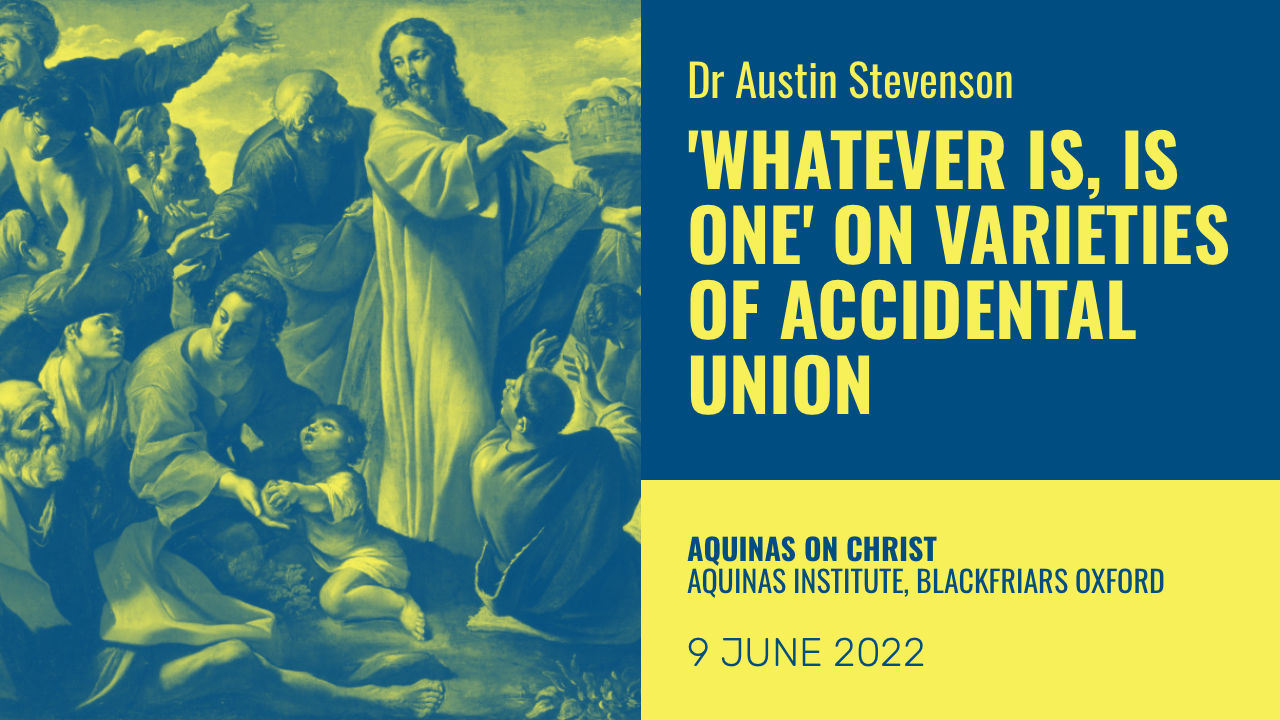What if it is not the ‘divinity’ of Jesus that causes problems for historians, but his humanity? To insist that Jesus was fully human, as both theologians and historians do, still leaves us with the question of what it means to be human. Further, historians often misunderstand the historiographical implications of classical Christology. This book offers a new path toward the reconciliation of these disciplines by focusing on human knowledge and subjectivity, which are central issues in both historical method and Christology.
Endorsements & Reviews
-
“This remarkable book constitutes a significant contribution to contemporary Christology. The author offers a deeply insightful analysis of the relationships that obtain between conciliar Christology and modern historical-critical scholarship. He does so while advancing scholarly understanding of Aquinas' philosophy and theology in reference to Christology, in ways that have real significance for Christian ecumenism. The treatment of the knowledge of Christ in historical context is seminal and provides a reference work for future reference and debate. A first rate theological work.”
-
“This book compellingly argues that research into the identity of Jesus is tied up with metaphysical commitments of some sort, though the nature and function of these commitments is often hidden from view. Austin Stevenson brings them clearly into the light of day. Only an author who understands the issues deeply could have written so lucidly about them. This book is anything but a facile rejection of historical research. Rather, it challenges its readers to think about what history means and to bring history and theology into dialogue with one another.”
-
“This work argues that Thomas Aquinas's participatory metaphysics and epistemology -- including his understanding of prophecy and of Jesus's beatific vision -- can assist powerfully in the resolution of certain potent puzzles about the apocalyptic Jesus, as well as in the development of a historical biblical scholarship that is appropriately critical in facing its own philosophical premises. Persuasive in its applications to Jesus scholarship and sure-handed in its interpretations of Aquinas, the book represents a major advance. It will be of significant help to theologians and biblical scholars seeking ways to enable the erudition of the each discipline to instruct the other.”
-
“Stevenson argues that the theology of Thomas Aquinas can provide excellent resources for making sense of the Gospel narratives in a way utterly compatible with classical or conciliar Christology, and he attempts to show this by giving an account, by and large accurate, of what Aquinas has to say about the varieties of Christ’s human knowledge. . . one of the more interesting sections of the book is a brief but careful discussion of the ways in which notions of consciousness have come to be included, in an almost casual way, into discussions of the theological concept of person—a tendency which Stevenson rightly notes is utterly ahistorical.”
Journal of Theological Studies, https://doi.org/10.1093/jts/flaf035
-
“Austin Stevenson’s The Consciousness of the Historical Jesus is a stellar monograph contribution to these ongoing debates on the knowledge of Christ, greatly expanding the scope of the discussion beyond what Lonergan in his Gregorian lectures termed the “constitutio psychologica Christi,” and embracing questions on the more fundamental relationship between metaphysics, biblical exegesis, and historical method.” (Jose Isidro Belleza, University of Cambridge)
Thomistica, https://thomistica.net/book-reviews/https/thomisticanet/quaestiones-url/consciousness-historical-jesus
-
“Stevenson’s book is technical and learned, demanding careful engagement with Thomistic metaphysics. Nevertheless, the clarity of the presentation and its enjoyable nature make the material worth reading. For those with an interest in classical Christology, this book proves to be a great resource. . . For those interested in exploring Thomistic scholarship from multiple perspectives, ranging from virtue theory to Thomas’s classical metaphysics, Stevenson’s book is an exceptional guide.” (Rafael Bello, Oklahoma Baptist University)
Themelios: The Gospel Coalition Review https://www.thegospelcoalition.org/themelios/review/the-consciousness-of-the-historical-jesus-historiography-theology-and-metaphysics/

A podcast that confronts challenges to the Christian faith with hope
Essays
Articles
-
https://doi.org/10.16995/zygon.26339
Guest Editors: Austin Stevenson, Emily Qureshi-Hurst, Tim Middleton, Rafaella Taylor-Seymour
This special issue, entitled “Religion and Contemporary Crises,” showcases the proceedings of a two-day workshop held at the University of Oxford in Spring 2024. The workshop sought to bring together a diverse group of early career researchers with a broad range of research interests to reflect upon some of the most significant problems facing our modern world. We were generously funded by both the Religion and the Frontier Challenges research program at Pembroke College, University of Oxford, and the Ian Ramsey Centre for Science and Religion, University of Oxford.
-
https://doi.org/10.16995/zygon.17381
ABSTRACT: A common feature of the pandemic has been Christian thinkers using anti-vaccine misinformation to reinforce their opposition to public policy. This illustrates a broader reality, that vaccine hesitancy is not so much a deficit in scientific knowledge as a conflict of values waged through disagreements about vaccine science. Typically, ‘the science’ is a proxy for disputes about justice and democracy. One reason for this may be the contemporary ‘linear model’ of science-policy interactions, which has operationalized a naïvely scientistic approach to social issues and frequently circumvented the norms of democratic representation and debate. This has made it easier to position political opponents as enemies of ‘the science’, thereby transforming essential debates about values into intractable disputes about ‘science’. In this paper, I will consider how political theologies position Christians in relation to allied scientific and governmental institutions, highlighting theological resources that reframe the nature of vaccine debates.
-
https://doi.org/10.3389/fpubh.2024.1394569
ABSTRACT: In this Viewpoint we call attention to the usefulness of humanities and social sciences in responding to the challenge of pandemic preparedness. Within the study of infectious disease there remain silos and hierarchies in interdisciplinary work. Often, social sciences and humanities continue to reside on the epistemological peripheries, despite there being a significant tool in understanding responses to pathogenic disease and their treatments. Using examples from our own cross-disciplinary research and engagement program on vaccine hesitancy in South Africa and the United Kingdom (UK), we put forward a call for closer integration on research and methods from social sciences and humanities into pandemic preparedness.
-
Guest Editors: Darren Sarisky, Pui-Him Ip, and Austin Stevenson
This special issue of Modern Theology gathers together full research essays that were first presented, in summary form, at the 2021 online conference Theological Genealogies of Modernity. For both the original event and now this collection, theological genealogies of modernity serves as a term of art referring to any complex, broad-sweep narrative account of the rise of a modern Western cultural order that highlights theology's role within that process. The conference organizers deliberately employed the term in a capacious sense out of a desire to find a rubric under which to include a range of narratives and disciplinary perspectives on them. Defined broadly, the terminology extends both to stories celebrating the Enlightenment for bringing about progress and also to narratives stressing the need constantly to recur to a pre-modern cultural synthesis from which people today should continue to receive instruction. Of course, this simplistic distinction deserves to be challenged, and several of the essays here contest this stark division of options. The overall aim of the inquiry into genealogies is to help theologians understand how these narratives work, regardless of which account is attractive to them, so that they may develop a well-informed position on how (and even whether) to employ them.
-
doi.org/10.5325/jtheointe.16.2.0234
Since the fourth century, Mark 13:32/Matt 24:36 have regularly been taken in hand as evidence of Jesus’s ignorance and used to advance subordinationist, kenotic, or Ebionite christological agendas. Meanwhile, modern biblical scholars regularly use patristic commentary on this passage as evidence that the classical Christian tradition advanced ahistorical, docetic eisegesis. In this essay, I consider patristic commentary on this pericope to show that these criticisms are unwarranted. The church fathers did not consider Jesus’s humanity to be an abstract, philosophical conundrum. Rather, their approach was driven by intertextual concerns set within a theistic metaphysical framework. They did not resolve a competition between Jesus’s humanity and divinity in favor of his divinity but upheld the confession that he was fully God and fully man in the face of a variety of approaches that threatened to corrupt or relinquish his humanity. I suggest that certain philosophical developments in the thought of Thomas Aquinas (1225–1274) allow us to make distinctions that both uphold the patristic exegetical tradition and extend it in ways that do greater justice to the passage.
-
Albert Schweitzer once wrote that, at Chalcedon, the “doctrine of the two natures dissolved the unity of the Person, and thereby cut off the last possibility of a return to the historical Jesus.” I argue that a likely cause of this pervasive perception of Chalcedon is the reflexive deployment by modern thinkers of a Lockean concept of personhood grounded in consciousness. I suggest, by way of contrast, that Thomas Aquinas’s substantial account of personhood provides greater space for historical approaches to Jesus by protecting the finite integrity of Christ’s human nature and the unity of his personhood. I conclude by highlighting one implication of this discussion for the role of metaphysics in theological reflection.
-
doi.org/10.1017/S0036930619000346
This article argues that the quests for the historical Jesus have largely operated with an understanding of history hindered by a severely constricted range of divine and human possibilities. By outlining human ‘self-understanding’ as a historiographical question, it emphasises the determinative role in historical judgement played by the historian's assumptions about the range of possibility available to the processes of human thought. Highlighting three particular concerns that historians tend to connect to ‘docetism’, it suggests a couple of ways that metaphysical and theological forms of reasoning could expand the horizon of possibilities available to historical Jesus scholarship in a way that will augment access to the historical figure of Jesus.
-
The term ‘Spirit-Christology’ has begun to play an increasingly conspicuous role in contemporary theological discussions. Arising on the one hand from a growing field of Pentecostal theological reflection, and on the other from a post-Kantian desire to replace metaphysics with ‘history’ and ‘narrative’ (an aspiration evident among both biblical scholars and Barthians), the concept of Spirit- Christology remains somewhat ambiguous in its meaning and usage. Although it often serves as a moniker for contemporary Adoptionism, there is a mounting interest in Chalcedonian approaches to Spirit-Christology, which strive to uphold both a sufficient ontology and an adequate understanding of Christ’s activity. In a recent book, Dominic Legge has argued persuasively that Thomas Aquinas (1225–1274) evidences just this sort of balanced Spirit-Christology. In this essay, I engage with and extend Legge’s argument in order to suggest some possibilities that it opens up with respect to biblical hermeneutics and the theological interpretation of Scripture.
-
In this article, I begin by outlining the development of the doctrine of the eternal generation in Origen and the resulting corollary of the eternal existence of creation. My focus then turns to the later Alexandrian tradition, whose unease with Origen’s understanding serves to introduce a discussion of Athanasius’s doctrine of the eternal generation, focused especially on his distinction between being and will and on the properly Christological orientation of his approach. Finally, I describe the resulting impact of the doctrine on the Christology of Nicaea. Through this investigation, I argue that, although Origen’s treatment exhibits significant shortcomings, the doctrine of the eternal generation served for both earlier (Origen) and later (Nicaea) Christology as the biblically ordained language through which the church was enabled to speak truly about the unity and distinction of the Father and Son, securing the status of the Son as equal in divinity with the Father while differentiating the two in ways that upheld biblical revelation.
Theology Reviews
Fiction Reviews
Talks & Media








































